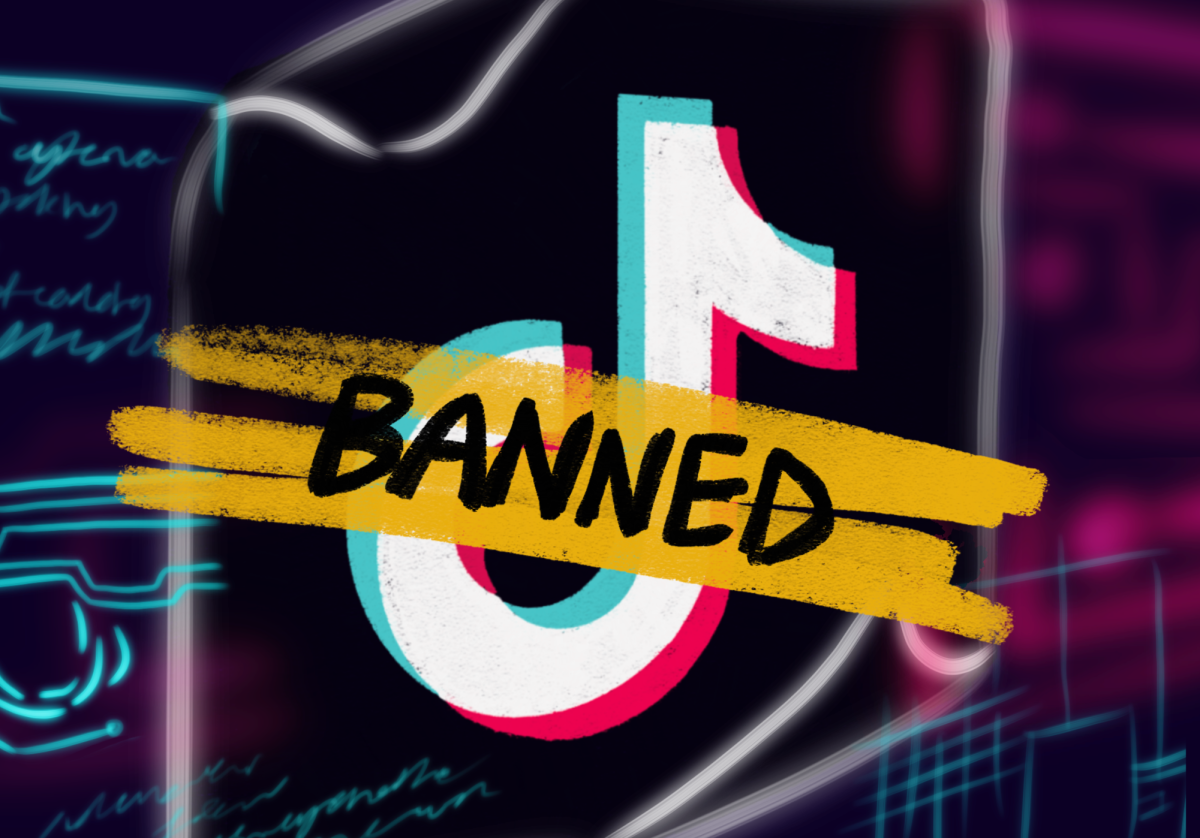Given the recent uncertainty surrounding the future of TikTok, student opinion has split on the efficacy of the social media platform’s potential ban. Beginning Jan. 19, public discussions surged nationwide following the temporary ban of TikTok. After years of speculation about its potential prohibition, popular social media app TikTok was briefly banned and unavailable for users within the country. However, before most people could even react, access was restored just one day later.
Concerns remain about this regained access after a potential ban was again threatened to take place on April 5. However, a 75-day extension was soon put in place, pushing back the second potential ban well into June — a bad start for summer break.
The app, originally launched in China as Douyin in 2016, expanded globally after ByteDance acquired and merged it with its international anagram Musical.ly in 2018. This acquisition ported a Chinese app over to the rest of the world, despite being previously inaccessible. Criticism of TikTok has often focused on its connections to the Chinese government. During the 2019 Hong Kong protests, the platform was accused of censoring content related to the demonstrations, raising concerns about the influence of the Chinese Communist Party over ByteDance.
Additionally, due to notorious public surveillance in China, Bytedance, and by extension TikTok, is required to provide access to user data to the Chinese government upon request, which it actively did for users of the app during the Hong Kong protests. Similar concerns led India to ban TikTok in 2020 over potential risks with foreign interference and data security.
In 2020, then-President Donald Trump had planned to ban the app, but the endeavor was halted by the subsequent Biden Administration. Later in 2024, Biden passed an ultimatum to Bytedance: sell the app to an American company or face prohibition. TikTok was not sold and faced the ban for two days until current President Trump extended their sale deadline until the latter half of April.
Student opinion on the TikTok ban remains divided. Constantine Kontes ’25 expresses support for the ban.
“I think our country’s safety should be our priority. There are so many similar apps to TikTok all over the place that we don’t need the one that sells our data to China,”said Kontes.
Other students shared varying perspectives. Gabriel Bak ’25 was indifferent. “These apps are all the same, it does not matter at all. If it gets banned just watch something else,” Bak said. “It’s not that difficult.”
Jaewan Lee ’25 similarly echoed the sentiment. For Lee, uncertain times call for flexibility.
“I’ve used both TikTok and Instagram Reels. They are the exact same, you will see what your algorithm wants you to see,” Lee said. “It doesn’t matter where you doomscroll, just like move on.”
Some students questioned the necessity of the ban. Axel Lindquist ’25 thought the ban was unneeded and placed unnecessary restrictions on users.
“We don’t really have proof that they’re selling anything to China. And if they are, why can’t like the government seize it or sell it in auction? Banning it just seems too extreme,” added Lindquist.
Kontes thought otherwise, contextualizing the current debate within are larger geopolitical struggle.
“We are in a head-to-head race with China,” Kontes said. “They have such an upper hand against us if they have all of this data on everyone who uses it. If people really care about the US being safe, they’ll just move on to a different app, if they’re still even using TikTok now.”
Jason Micklei ’25 agreed with Kontes, extending worries about online privacy.
“I don’t know, if they’re going use this info against us,” Micklei said. “I don’t want them to have easy access to it.”
























